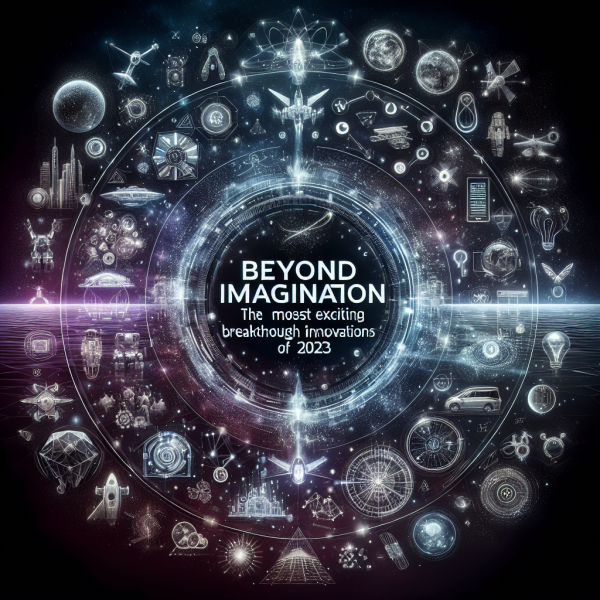Tech Market Disruption: Lessons Learned from Recent Startups

In the ever-evolving landscape of technology, disruption has become a defining characteristic of the market. Startups, often driven by innovative ideas and agile practices, have frequently been at the forefront of this disruption, reshaping industries and altering consumer behavior. As we analyze recent tech startups that have made significant waves, we can glean valuable lessons for aspiring entrepreneurs, established companies, and investors alike.
Understanding Market Disruption
Market disruption occurs when new entrants introduce innovations that significantly alter established ways of doing business. This shift can come in various forms, including technological advancements, novel business models, or entirely new products that cater to unmet consumer needs. While disruption is often associated with challenges for incumbents, it also presents abundant opportunities for newcomers willing to take risks.
Recent Case Studies of Disruption
-
FinTech Revolution: Stripe and Square
The financial technology sector has seen remarkable disruption led by startups like Stripe and Square. Both companies democratized access to payment processing, enabling small businesses to accept transactions without the barriers traditionally imposed by banks. This shift has empowered entrepreneurs and encouraged a wave of e-commerce growth.Lesson: Identify inefficiencies in established systems and streamline them to empower users. When creating your product, focus on user experience and accessibility.
-
The Rise of Remote Collaboration: Zoom
The COVID-19 pandemic catapulted Zoom into the spotlight, making it a household name. Originally a startup competing against established giants like Skype and Google Meet, Zoom’s emphasis on quality, ease of use, and robust features allowed it to dominate the remote communication space.Lesson: Sometimes, simplicity and performance trump everything else. Foster a user-centric approach and continuously innovate based on customer feedback.
-
Direct-to-Consumer (DTC) Models: Warby Parker and Dollar Shave Club
Warby Parker disrupted the eyewear industry by offering stylish glasses at lower prices with a DTC model, cutting out middlemen. Similarly, Dollar Shave Club transformed the shaving market with a subscription model that challenged established brands. Both startups capitalized on a direct connection with their customer base, leveraging social media for marketing and brand awareness.Lesson: Strong branding and a connection with consumers can replace traditional retail strategies. Building a community around your brand can foster loyalty and organic growth.
-
Health Tech Innovation: Peloton
Peloton emerged as a leading at-home fitness brand by integrating technology with traditional exercise equipment. By offering a subscription-based model for live and on-demand classes, Peloton disrupted the fitness industry, especially during the pandemic when gyms were inaccessible.Lesson: Blend technology with traditional industries, enhancing user engagement. Consider subscription-based models that generate steady revenue and foster consumer loyalty.
Key Strategies for Aspiring Startups
-
Embrace Agility
Startups thrive in agile environments where they can pivot quickly based on market feedback. Adopting methodologies like Lean Startup can help mitigate risks and streamline the development process. -
Leverage Data Analytics
Utilize big data and analytics to understand customer behavior and market trends. Data-driven decision-making can inform product development, marketing strategies, and customer service improvements. -
Focus on Scalability
Designing a scalable business model is crucial to managing growth. As seen with companies like Slack and Canva, harnessing technology to automate processes can enhance productivity without drastically increasing overhead costs. -
Cultivate a Diverse Team
A diverse team brings varied perspectives that can lead to more innovative solutions. Emphasizing inclusivity in hiring practices can promote creativity and ultimately drive better business outcomes. - Prioritize Sustainability
Today’s consumers value sustainability. Startups that incorporate eco-friendly practices into their operations not only contribute positively to the planet but also appeal to an increasingly environmentally conscious market.
Conclusion
The tech market is a dynamic ecosystem characterized by rapid change and disruption. Recent startups like Stripe, Zoom, Warby Parker, Dollar Shave Club, and Peloton have illustrated that innovation, user experience, and adaptability are key drivers of success. As we witness ongoing transformation in various sectors, these lessons can guide future entrepreneurs in navigating challenges and seizing new opportunities. For existing companies, staying attuned to startup innovations is vital in remaining competitive and relevant in an ever-changing market landscape.














